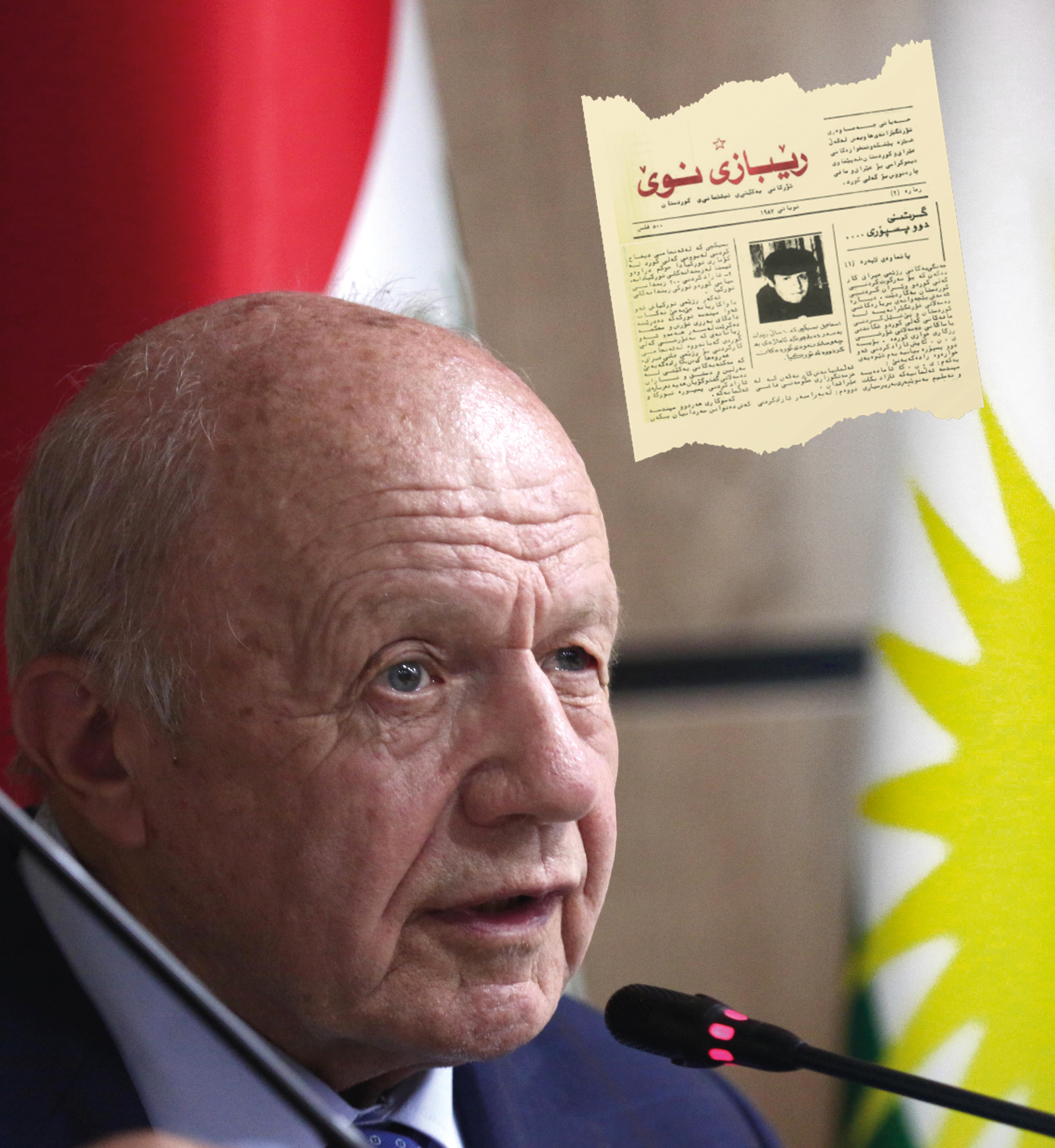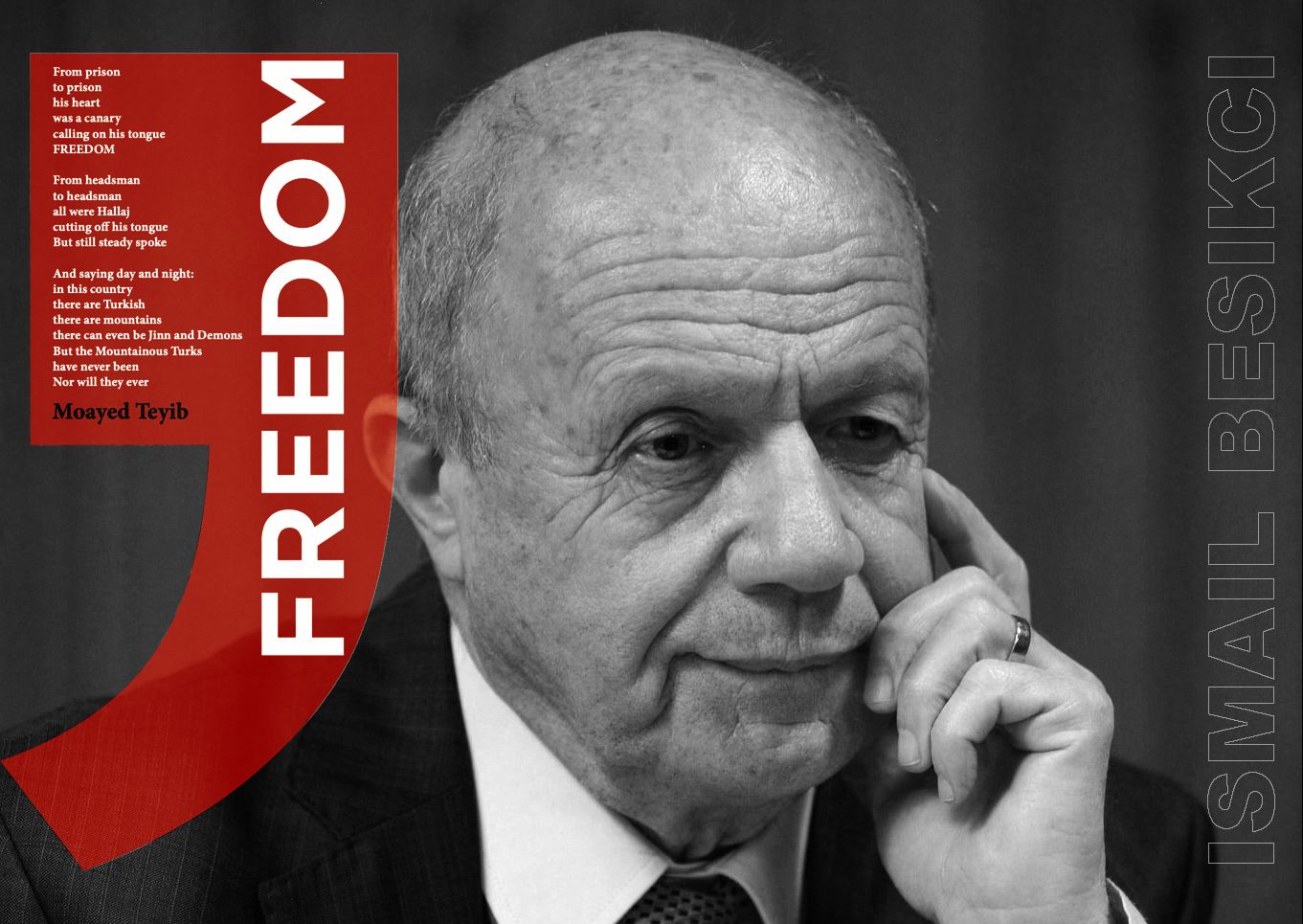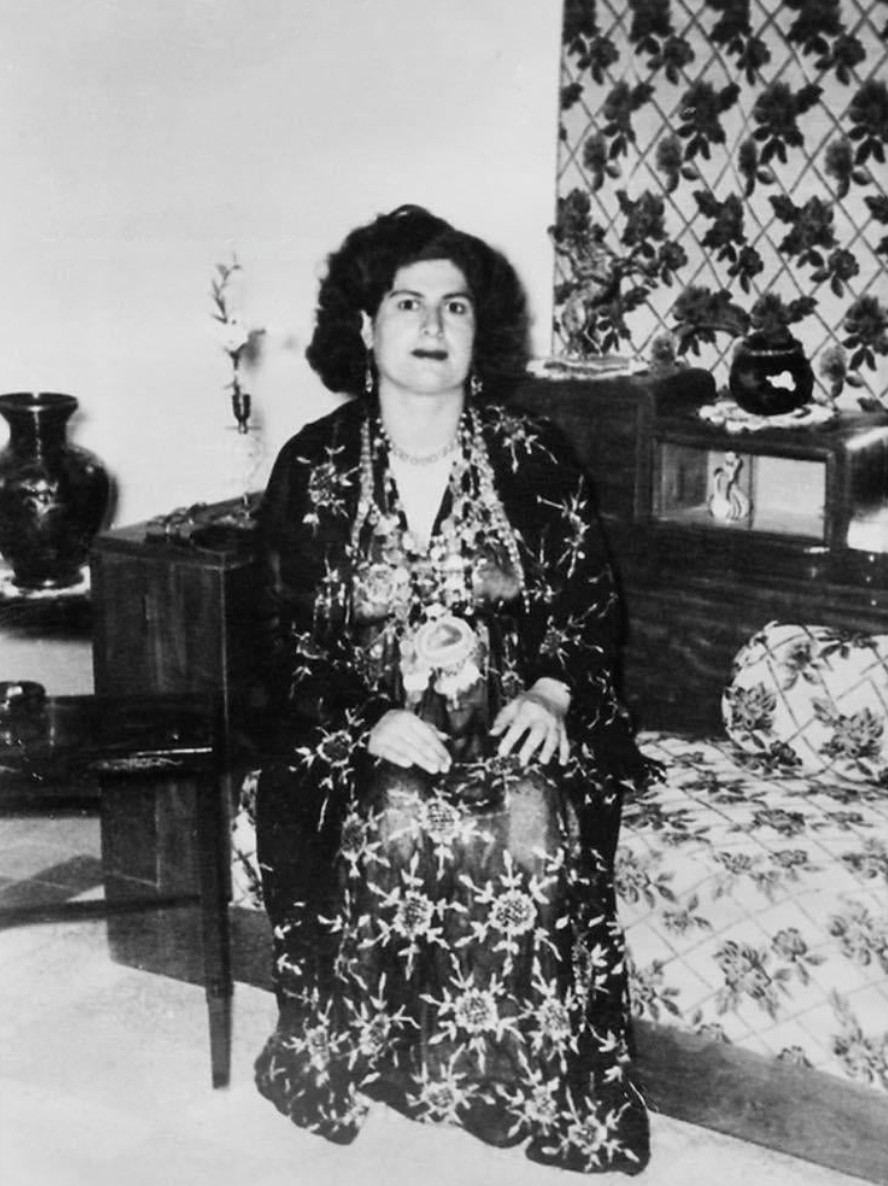While the Kurds remain deprived of their basic rights and continue to stand up for their cause, they are often given a helping hand from their friends, in this case not only ‘the mountains’. There have been many instances bearing witness to how the Kurds welcome such opportunities to advocacies with faith and fidelity. One example is a brave call in 1987 for the release of Turkish philosopher Ismael Besikci from a prison in Antep, who had dedicated nearly his entire life to defending the Kurds around the world.
In February 1987, Kurdish newspaper Rebazi Nwe published the headline “Capture of Two Foreign Experts” on its frontpage. The news article revealed that Kurdish peshmerga forces had arrested two foreigner nationals, one German and one Turkish, who had claimed to be engineers working for a company contracted by the Ba’ath regime of Iraq but to have mistakenly entered a warzone under the control of the Kurdish fighters. The article pointed out that Jalal Talabani, then Secretary-General of the Patriotic Union of Kurdistan and who later became the first Kurd to serve as the president of Iraq, had agreed to hand over the German national to the German embassy in Tehran or Baghdad but tied the freedom of the Turkish national to the release of Besikci from Aintab prison.
The reaction of Kurds to Besikci’s conviction as part of the Kurdish cause was well received by the imprisoned Turkish sociologist. In his latest book titled My Memoirs, Besikci recounts the day he read the news on Turkish Hurriyet newspaper. While hearing others calling for his freedom was a pleasant feeling that happens rarely behind bars, Besikci was in fact rather worried that prison authorities might call him in for investigations about his connection to these developments. This, however, never happened, but the rapture of having faithful friends in Kurdistan remains with him to this day.
Besikci has become famous around the world for his writings stemming from his thoughts and attitudes about the Kurds. He was born in 1939 in a conservative Turkish family in the Iskilip district of Corum province in Turkey. After doing his primary and secondary studies there, he was admitted to Ankara University’s Faculty of Political Science and graduated in 1962, after which he completed PhD at Ataturk University.
During his military service from 1962-1964, he was sent to serve in a village near the Bitlis and Hakkari areas, where he first saw the Kurdish nomadic tribes with their livestock passing through. With his first impression, he noticed that these peripatetic tribes have their own language, traditions, clothes, and history and realized that they are completely different from the Turks. Thus, they never matched what some in Turkey had called them: ‘the Mountainous Turks’.
This was where his curiosity and inclination to delve into these nomadic tribes was triggered and grew into the subject of his PhD dissertation, a study of a Kurdish tribe named Alikan. This dissertation was rejected by the faculty at Ankara University, but Besikci was awarded an Honorary PhD for it by Bogazici University in Istanbul in 2013.

In the 50 years of his academic career, Dr. Besikci published 36 books and 31 research studies on the Kurdish cause in the Middle East, out of which 32 books are banned in Turkey while most of his works have been translated into other world languages, including Kurdish.
Since his works were dedicated to the Kurds, he was first disqualified from teaching at the university level and then he sued for segregating from Turkish nation, bringing him a 13-year prison sentence in prison in 1971. From that day onwards, he has been indicted and sentenced to a total of 250 years in prison and has spent 17 years behind 23 different prison bars for advocating for liberty, democracy and Kurdish rights.
Besikci’s memories are of those days spent in the dark prison rooms behind iron bars. Given his crossroad between the university and prison, he willingly took the later as a place to produce academic writings about the Kurds and managed to turn prison life into a university setting. He has repeatedly stated that “after the Second World War, every involved nation obtained their rights except the Kurds, and the division of great Kurdistan from 1921 has remained.”
Although he was known as the symbol of courage and liberal thought, as well as an adamant, determined, and advocating writer for Kurdistan, the Kurds are not the only people who have honored and valued Besikci’s works – his views and words are highly respected worldwide.

Alongside being candidate for a Nobel Peace Prize in 1987, he was nominated for and bestowed many international awards but refused some from those countries who have oppressed Kurds or worked with their oppressors. Besikci has also been awarded honorary PhDs by three universities, including Soran University in Kurdistan, where a hall and a street are also named after him. In Rawanduz, a statue is built to pay tribute to his decades-long commitment to advocating for Kurdish rights.
Besikci has earned public, academic, and political respect in Kurdistan through his writings and endeavors. He has consistently upheld that “the Kurds are a politically significant and dynamic community of the Middle East.” For this, several prominent Kurdish figures have complimented him in their works, among whom is renowned Kurdish poet Sherko Bekas who wrote:
“All we can do for you now is keep you as a flower, a poem, and freedom in our soul.”
Khalil Abdullah is a Kurdish writer. Throughout the past 40 years, he has published more than 20 books, focusing mostly on culture and social issues.

